
views
Making Preliminary Plans
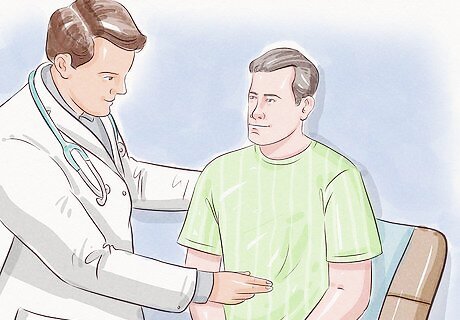
Make an appointment to see a doctor. Even if you're healthy, see a physician before attempting any any type of eating competition. Doctors have discovered serious health problems caused by competitive eating--ranging from choking to the permanent paralysis of the stomach and gastrointestinal tract.Your doctor will help you evaluate your health risks, and if you decide to proceed, they can also help ensure that your training regimen is safe. Nobody under the age of 18 should try competitive eating. The Major League Eating Federation now recommends that all individuals refrain from training at home. The organization also only endorses competitions that arrange for medical staff to be present in order to ensure participants' safety.
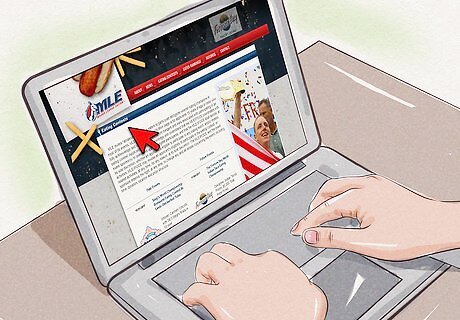
Find a hot dog eating competition that you want to attend. Before you start training, check to see if there are any upcoming competitions near you. You can check the Major League Eating Federation's website for information about contests in your area: https://www.majorleagueeating.com/contests.php. Aim to participate in a competition that's approximately 2-4 months away, so you will have plenty of time to develop your training regimen and prepare. Many competitions require that you to pay in advance to register, so make sure to have a credit card or other online form of payment ready.
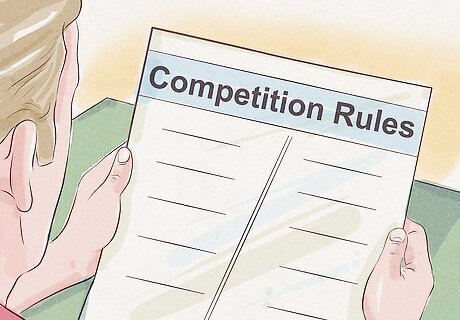
Learn the competition rules. Not all hot dog eating contests share the same rules. Some have different age or skill level requirements for entry. They may have different time limits or rules for eating—such as “no dunking” of the bun in water or no listening to music while eating. Learning these rules ahead of time is essential to guaranteeing that you train appropriately.
Training for Your Competition
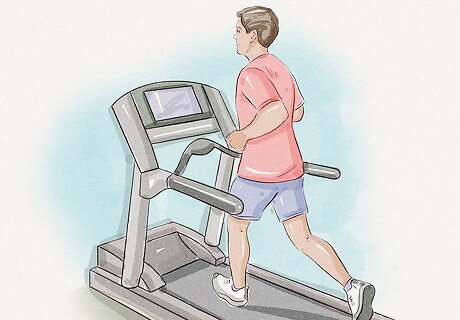
Exercise regularly to remain in good health. It might seem counterintuitive to emphasize exercise for an eating competition, but regular exercise is essential to keeping unwanted weight off, and it also helps to increase your metabolism. Many hot dog eating champions incorporate both cardio exercise and weight training into their regular workouts.
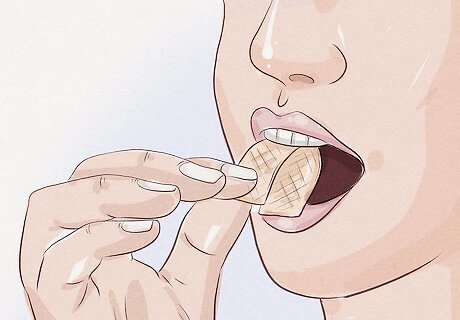
Chew gum regularly to strengthen chewing muscles. Learning to chew quickly can give you a competitive edge at competitions. Chew gum as much as possible when not eating. Also consider chewing more than 1 stick of gum at a time to give your jaw muscles a more intense workout. The competitive eater Bob Shouldn't chews up to 25 pieces at a time.
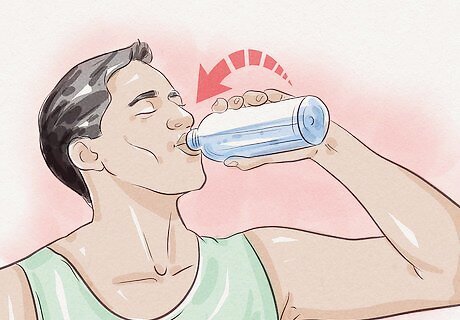
Increase your water intake. Write down how much water you can drink on a given day. Consult with your doctor to determine the rate at which you can safely increase your water intake. Drinking large amounts of water will allow you to gradually increase your stomach's capacity without introducing extra calories. Challenge yourself to the meet the goals you establish with your doctor. It's essential that you work with you physician to ensure that you increase your water intake safely. If you drink water too fast, you risk throwing off your electrolyte balance, which could cause you to get dizzy, loose consciousness, or even go into shock.
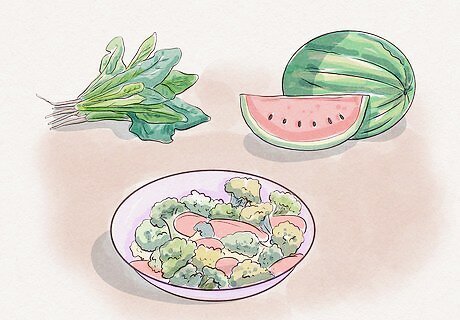
Expand your stomach with low-calorie foods. In addition to drinking water, eat low-calorie foods to increase your stomach's capacity. Steamed vegetables, watermelon, and leafy greens are great options. Use a scale to weigh them before eating them, so you can track how much you're consuming as your training progresses. It's also important to share this information with your physician to ensure that you are not consuming too much of a given food group. Too much sugary watermelon, for instance, could have health consequences. You'll also need your doctor's supervision to make sure that you maintain the correct food to water balance, as this can also impact your electrolyte levels and overall health.
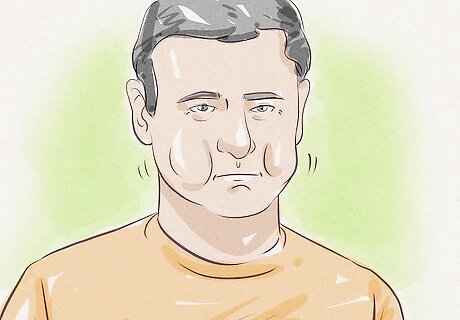
Practice swallowing large amounts of food without gagging. Take large gulps of water and gradually increase to larger and larger gulps. Then try semi-solid foods like yogurt or soup before attempting to swallow large amounts of solid foods. Always practice this technique in the presence of a medical professional or someone who knows the Heimlich maneuver and CPR. If you find yourself gagging a lot, try breathing through your nose as you swallow.
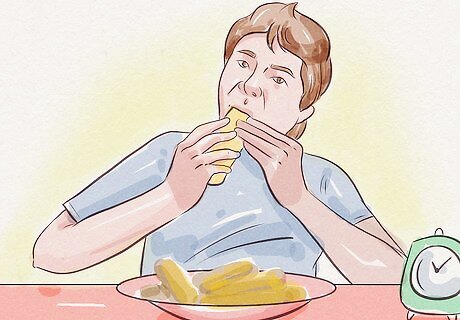
Perfect your hot dog eating technique. Time yourself eating the same number of hot dogs using different strategies to discover which approaches allow you to eat the hot dogs the fastest. Strategies you might want to experiment with include: Breaking hot dogs and buns in half before eating them Eating the protein first Dipping hot dog buns in water before eating them Rolling the bun up into a small ball before eating Varying your bite size Changing your posture by standing up or rocking back and forth
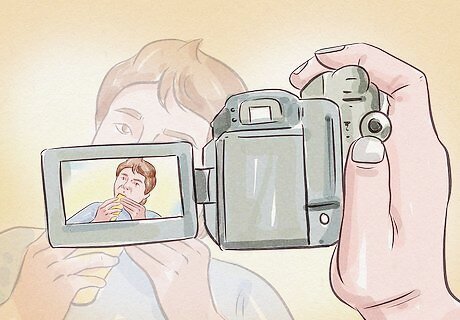
Film yourself eating hot dogs using your fastest strategies. Once you know what strategies work best for you, it's time to increase your speed by identifying and eliminating inefficient movements. Set up a camera or have a friend film you. Review the video looking for movements you can shorten or eliminate. When watching the video, you may observe that you always grab the hot dogs with your right hand. If this is true, move the hot dogs to the right side of the table to cut down on reach time.
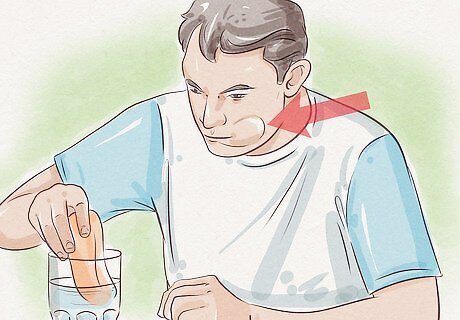
Challenge yourself with practice competitions. While you do not want to eat your maximum number of hot dogs on a regular basis, you should try to hold 1-2 mock competitions a week in the weeks prior to competition. Follow the rules for the competition you plan to attend and try to create an environment that will be like the actual competition setting. Ideally, you want to hold your last practice competition 32 hours before your competition starts or no sooner than 18 hours before it begins.
Attending a Competition
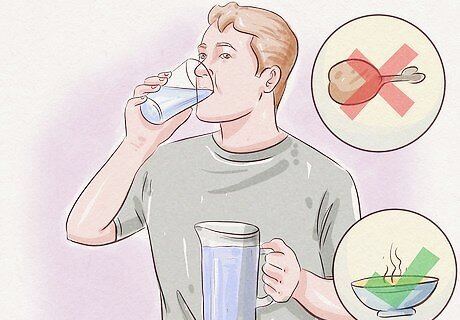
Eat as little as possible they day before your competition. After your last practice competition, try to subsist on fluids and semi-solid foods in order to create as much space as possible in your stomach. Make sure to check with your doctor before fasting or changing your diet in any drastic way and don't forget to stay hydrated even if you refrain from eating solid food. Many leading competitors fast a few days before their competition, relying only on water.
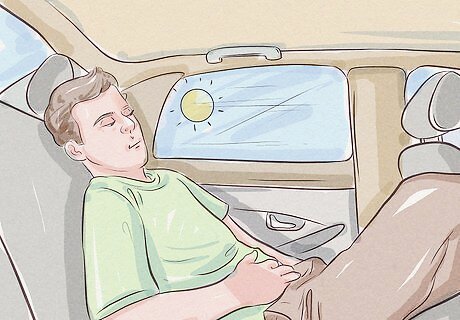
Stay out of the heat as much as possible before the competition starts. Most hot dog eating contests are held outdoors during the summer, often on July 4th. Heat has been proven to decrease appetite, so if you let yourself get too hot before the competition starts, you'll be at a disadvantage. Stay in an air-conditioned car or sit in the shade until it's time to compete. Some competitors even douse themselves in ice water right before the competition starts.
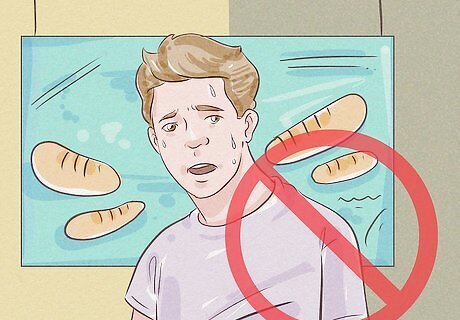
Stick to your established strategies. By the time you arrive at the competition, you will have timed, evaluated, and practiced your strategy. Don't let nerves cause you to forget what you've done and try something new on the spot. Stick to what you know works!
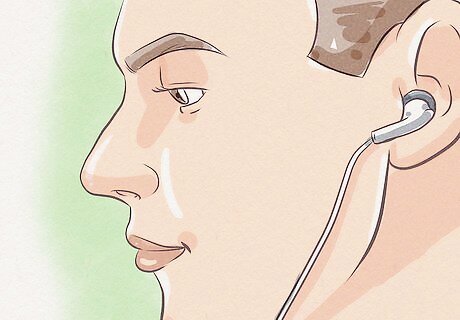
Create a motivating environment. Find out what motivates you and try to recreate it at the competition. If you like listening to a particular kind of music and the competition allows headphones, then play that music. Alternatively, have friends and family cheer for you. Not only will it boost your spirit, but it'll be good to have them there to celebrate when you're victorious.











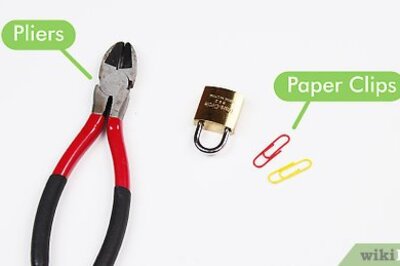


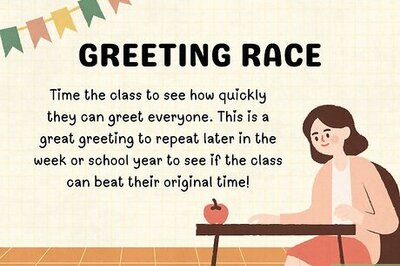





Comments
0 comment